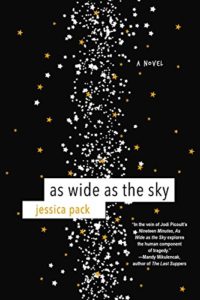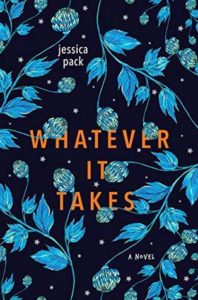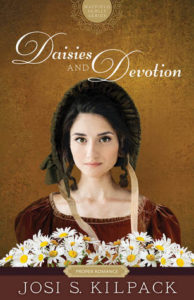 Josi S. Kilpack‘s first national women’s fiction novel, As Wide as the Sky, was published by Kensington Press, under the pen name “Jessica Pack”. It won the 2018 General Fiction Whitney Award.
Josi S. Kilpack‘s first national women’s fiction novel, As Wide as the Sky, was published by Kensington Press, under the pen name “Jessica Pack”. It won the 2018 General Fiction Whitney Award.
The Kubler-Ross model, typically known as the five stages of grief, was presented by Swiss psychiatrist, Elizabeth Kubler-Ross, in her book, On Death and Dying, first published in 1969. She had created the theory to help terminally ill patients and their family members understand what they were feeling. The five stages are: denial, anger, bargaining, depression, and acceptance.
I first learned about Kubler-Ross in high school when we studied death and dying in my nursing assistant certification course. I became familiar with these stages when I worked in healthcare, but the process didn’t become personal until my brother Mike committed suicide a few years later. In the immediate glare, knowing the stages wasn’t terribly helpful, but over time I realized there was something empowering—if only a little—about recognizing what stage I was currently in and not judging myself for being mad or so very, very sad, or not wanting to think about it at all. I have written grief into my other stories the same way I’ve included many elements; as a piece of plot or an aspect of character. I never expected to write a book that centered around grief’s more prickly parts.
The story that eventually included those prickly parts started as a romance inspired by my good friend, and fellow author, Jennifer Moore. Jen suggested the idea a short story anthology with the theme of “Lost and Found.” The theme connected in my mind to a years-earlier incident when my husband’s uncle had received a package in the mail from his high school. The package contained his class ring, which had been found by a fisherman in a lake where he’d lost it fifteen years earlier—what are the chances, right? This became the seedling of my story about a mother who finds a class ring when she goes through the belongings of her recently deceased son. The premise was that she would return the ring to its owner who would turn out to be her soul mate … and everyone lived happily every after. My goal was 20,000 words and I started it at a weekend writer’s retreat in 2013. By the end of that weekend the story was much bigger than I had expected and the romantic element was vague at best.
I withdrew from the anthology in order to follow the muse. Back then, the only point of view character was the mom who finds the ring in her son, Robbie’s things—short for Robert—after his execution. Once I got to about 40,000 words I decided to add the point of view of the ring’s owner. It was around this time that I did some research into the largest mall in Omaha, Nebraska—Westroads—where I’d set the mass shooting that sentenced Robbie to death. It turned out that there had been an actual mass shooting there by a man with the name of Robert a couple of years before my fictional scenario. I decided to use that event as part of the obsessive spiral that leads to Robert Mallory’s break with reality. I also learned that Nebraska no longer practiced capital punishment, which necessitated moving the story to a state that did. The writing was heavy and cathartic and I questioned the wisdom of writing it a hundred times. I took long breaks after some of the scenes in order to process through the emotional weight, then often went back and took things deeper in the revision of that particular scene. It was when I added the additional point of view characters that the story wasn’t about a mom trying to make sense of complex feelings for her son and a man trying to make peace with his past mistakes; it was about grief. How it corners us. How we rail against it. How each of us have a “default” stage that catches us over and over again. I faced my feelings as a mother whose children are growing into their own people and not necessarily doing their lives my way, a daughter who hasn’t extend enough grace toward my parents, and a sister and friend who sometimes avoids connecting with people I love because it hurts so much. I looked into the corners of marriage as an institution and my marriage in particular, explored what expectations we have when we go into parenting and what’s left by the time those babies are signing their own apartment leases and defining their own faith. Ultimately, the writing process was healing for me, but as anyone knows, healing is not easy.
After three years of writing and rewriting and adding and taking out, I had a finished draft. My agent began submitting it to editors in January of 2017. On March 5, 2017, my youngest brother, Matt, took his life in the same manner Mike had twenty-two years earlier—almost to the day. Mike had been buried on my mother’s forty-seventh birthday. On her sixty-ninth birthday, she sat in the conference room of a different mortuary and picked out the funeral service for her youngest child. Two weeks later, Kensington Publishing accepted the book for publication. The timing was both horrible, and perfect. I couldn’t have kept working on the story after Matt’s death, as it was I could barely read through it when I got it back months later with the editor’s feedback.
When I received my author copies more than a year later I sent a copy to my mom—as I always do when a new book is released. I tied this one closed with a ribbon, though, and included a note that told her it might be better to leave it unread. My mother’s parents were killed in a plane crash when she was sixteen. Two of her sons had taken their own lives. If anyone knows grief, it’s my mother, and though I hope my book might be a comfort and connection for those who read it, I did not want to hurt anyone, least of all the woman who had experienced more pain than anyone should. Mom abided that warning until the two-year anniversary of Matt’s death. She sent me a note after she finished that is now tucked into my personal copy. That she found some solace in the pages is validation without measure. I worried throughout the writing process how As Wide As the Sky would be accepted by the readers of my other books. It’s darker and different and I wasn’t sure how many would follow me into this new venture. It’s been gratifying to hear from readers who gave it a read and liked it, or even loved it. When it won the 2018 Whitney Award for Novel of the Year, Adult Fiction, I was stunned. I had been worried the story would be disliked, and therefore never imagined it would be embraced.
Life is hard and as the saying goes, none of us will get out of it alive. We won’t get out of it without loss either. And pain. And guttural sobs. A fictional story is only as powerful as the connection we make to the concepts portrayed within. My hope is that this story can be a help to those who read it. Bring comfort to heavy heart. Invite a bit more clarity to grief journeys—ours and the people around us. As a writer, wanting what I write to make a difference is the goal, the hope, the dream, and the petition of my prayers.
Fingers on keyboard.
Heart in throat.
A story one word at a time.

 Josi S. Kilpack began writing her first novel in 1998 and has written twenty-five novels, one cookbook, and been part of multiple collaborations since then. She is a five-time Whitney Award winner and Best of State winner in Fiction. Her second Jessica Pack novel, Whatever it Takes, was published on May 28. Her regency romance novel Daisies and Devotion was published by Shadow Mountain on May 14, and received a Publishers Weekly starred review. Josi currently lives in Willard, Utah, with her husband and children.
Josi S. Kilpack began writing her first novel in 1998 and has written twenty-five novels, one cookbook, and been part of multiple collaborations since then. She is a five-time Whitney Award winner and Best of State winner in Fiction. Her second Jessica Pack novel, Whatever it Takes, was published on May 28. Her regency romance novel Daisies and Devotion was published by Shadow Mountain on May 14, and received a Publishers Weekly starred review. Josi currently lives in Willard, Utah, with her husband and children.

I got a copy of As Wide As the Sky right after my sister died from cancer. I couldn’t read it because my grief was so overwhelming. It took a full year before I could pick the book up and try again. This time, reading it was like sharing grief with a friend. I could understand all the different variations of dealing with the grief because I’d been through it—and in a sort of weird way, it comforted me. It was an excellent book, that I might not have fully understood if I’d read it several years earlier. I’m so glad it won the Whitney Award. Very well-deserved.
I usually avoid real life stories. I’m more a fantasy, lighthearted murder mysteries and the occasional Regency or proper romance kinda gal. But because it was a Josi Kilpack (aka Jessica Pack) I bought it.
And I could not put it down. Yes, it was a hard read…. because you know it’s really happened somewhere.
I loved the different viewpoints of the different characters. It makes you think.
I’m so thankful for Josi’s talent and insight!